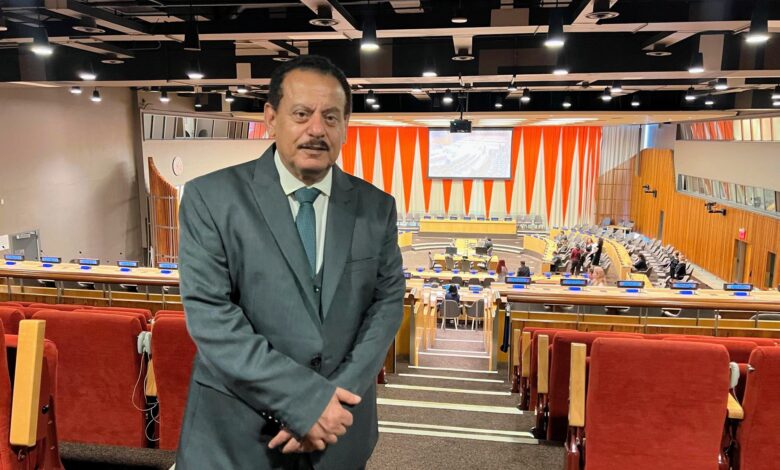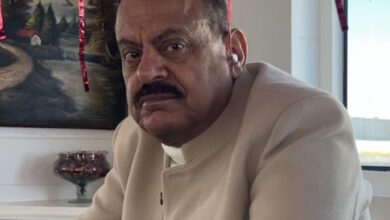Delicacy, Herds, and War

Yemeni mp
Ahmed Saif Hashed
Once, I possessed a young monkey, a gift from an elderly woman, or perhaps a purchase made by my mother after she noticed my instant affection for it, as if I were a lovesick admirer. I can no longer recall how it came to me, but I remember that happiness enveloped me beyond imagination. It was the first time I had seen a monkey so closely, observing its behaviors that mirrored our own, bringing laughter, joy, and wide, radiant smiles.
This little monkey would playfully interact with me, sharing a bond of affection and innocence. It filled my void and brought me immense joy, compensating for the tenderness we both lacked. I loved her with a fervor that captivated me, and I held her close in a warm embrace. I cared for her deeply, and she, in turn, would comb my hair daily, attending to me with incredible tenderness.
When my father returned from Aden and first laid eyes on me with her, it felt as if a thousand demons had descended. He struck both me and the monkey. Though I was resilient and could withstand the blows, I was incapable of parting from her. Reluctantly, he forced me to abandon her in the mountains, leaving her fate uncertain.
I recalled a notion I had heard from one of the aunts: the monkey herds in the mountains would not accept an outsider and would ruthlessly attack her. She would be torn apart, consumed merely for being foreign, with the scent of humans lingering upon her. I envisioned her tragic and brutal fate.
I endured a pain that surpassed even my darkest imaginings, sinking into a melancholy akin to grief. My sorrow felt infinite, reminiscent of someone mourning a beloved one, lost to death—an intimacy cruelly severed.
I pictured her in the mountains, suffering from hunger and thirst, tormented by the anguish of separation, lost in a wilderness of despair, facing an unknown destiny fraught with terrifying possibilities. Surely, her end would be tragic and painful.
For a time, I suffered more than I could bear. My frail body felt shattered and exhausted, while my imagination wandered far, tracing her bitter suffering. Our plight was grave, and the magnitude of our shared torment appeared monstrous.
I envisioned her approaching the monkey herd, pleading for mercy, as they viciously attacked, tearing her apart like ravenous beasts. They would rip her skin, sinking their fangs into her delicate form, fighting over her dismembered remains. I lived in pain and regret that overshadowed my weary memory.
My childhood, in part, veered towards a human rebellion, perhaps of a different kind. I felt it was a childhood fitting of my humanity, throbbing with a protest against death and this wretched life.
This severed existence does not confine itself to the realm of monkeys; it extends to the animal kingdom broadly and even permeates human society, undermining the status of reason and diminishing the dignity associated with being human.
While the lives of animal herds are driven by primal instincts such as fear and protection, human herds are founded on social, ideological, and discriminatory motives—more perilous than those faced by monkeys and other creatures. The human condition is governed by a tribalism that stands in stark opposition to reason, dignity, and equality, thwarting humanity’s quest for progress and justice.
* * *
At some point in my childhood, I would prevent my mother from slaughtering a chicken to ease my illness. The thought of treating my ailment with chicken broth and meat was unappealing, almost akin to healing through cauterization or branding the skin with fire, before I eventually grew accustomed to harsh realities.
I felt an overwhelming joy as I prolonged the life of our chickens, content with their eggs. A profound comfort enveloped me as I watched the chickens thrive, having saved them from a cruel fate. Happiness flooded me when I heard their cheerful clucks in the days following their rescue or saw them glowing with a love for life. I felt deeply that life was far more deserving than death and illness.
However, reality soon imposed itself, becoming shocking, oppressive, and terrifying, dictating its harsh terms upon us. This world has become perplexing and confounding. The confusion is immense, reflecting the tyranny, death, and calamities unfolding around us. The weight of this tyranny has grown heavier in a world that has narrowed in its justice or has become fundamentally unjust—a notion that has seeped into my imagination, steeped in pain.
My sensitivity still accompanies me in my old age, refusing to leave even when mocked by the stubbornness of masculinity. My conscience still chastises me whenever I ignore it. The protests of existence resound within me, filling me with noise. A part of me remains that child, crying out and urging my conscience in every circumstance and tragedy.
* * *
The war in Yemen, or rather the war against Yemen, has been horrific, terrifying, and catastrophic. We have lived through its aftermath, and we continue to endure its direct effects today, extending into the future across generations. Our tragedy, as we experience and feel it, has become grander and more profound than this vast universe—this is what stirs deeply within our souls. This brutal war has dragged on for seven years, steeped in death, suffering, and pain. The magnitude of our loss is immense, raining down upon us a hell of calamity that no longer distinguishes between stone and tree.
Today, I have grown older and more experienced in life, yet my sensitivity expands, and my protests continue to grow. Even now, much of me is haunted by that small child, even as I venture deeper into old age, perhaps nearing the brink of senescence.
One year in this relentless war feels like more than seven barren years. The war’s duration imposes its consequences, and the aftermath lingers, refusing to bring an end to our suffering. The exile of exile awaits me on the edges of a grave to cover my body with earth, and the unknown hastens toward us without shroud or tomb. Graves have become crowded; the cemeteries are overflowing. They now lack balconies or competitors, and bodies search for their shrouds in a homeland that has vanished, now smaller than a grave that still knows not the age of its occupant.
* * *






